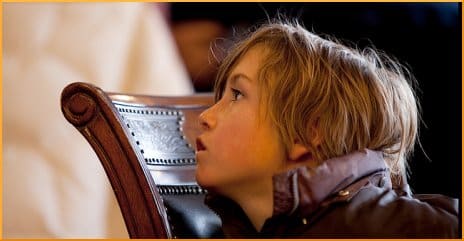
On many occasions Dr. Pretlow has been called upon by young students completing school assignments. The most recent was 13-year-old Heidi Zahnleuter who turned in a paper on childhood obesity that looked into such matters as whether watching TV or interacting with a computer are the actual causes of obesity. This is a happy coincidence, being a subject that Childhood Obesity News has been looking at recently. Heidi elicited this explanation from Dr. Pretlow:
TV viewing constitutes an escape from reality. Periodically, the person is ‘jolted’ back to reality, such as by a noise outside the house or just by looking at the room. That jolting is an unpleasant experience. Eating a snack displaces this unpleasantness, thus the person keeps snacking while watching TV.
We saw a steep increase in screen time during the same years that childhood obesity statistics inflated so dramatically, to the point where one might appear causative of the other. But in this student’s view, the effect is indirect. She covers some of obesity’s inconvenient side effects, like having lower lung capacity, and therefore even less incentive to get up and move around, and brings up a seldom-mentioned relationship between teen obesity and obsessive-compulsive disorder.
Heidi includes a quote from Dr. Pretlow’s book Overweight: What Kids Say, which is in turn quoted from his Weigh2Rock website. A young girl finds her family’s junk food habits destructive to her own efforts to eat in a healthier way. The excerpt ends with, “It’s like putting a drug addict into a drug house and telling them to stop the drug abuse!”
The writer observes that kids with emotional problems and low self-esteem develop weight issues, and kids with weight issues develop low self-esteem and emotional problems. She examines such areas as the effect of parental weight on children’s fate, and the deleterious impact of such life events as divorce, writing:
The parents of obese children and teens play a large role in their child’s health. Encouraging their child throughout the whole process helps increase self-esteem. Parents should not focus on the weight loss, but be positive and emphasize the strengths of the child to improve self-esteem.
She passes along Dr. Pretlow’s advice to parents, about not soothing children’s pain or disappointment with food, and not using food treats to barter for a child’s affection, because these and so many other mistakes can start a child on the path to food addiction, the main cause of the obesity epidemic. On the positive side, parents can help in many ways, and should encourage physical activity:
As a plus, exercising helps release tension and anxiety, which is another growing issue in the young. To exercise, a person does not need to play a team sport or something of that nature. One can exercise by dancing in the living room to music, or walking around a neighborhood daily, gradually increasing speed and length of walking time. Sometimes, family efforts to become healthier can be more effective if everyone is in on the challenge together.
Your responses and feedback are welcome!
Image by Menno Abbink

 FAQs and Media Requests:
FAQs and Media Requests: 











